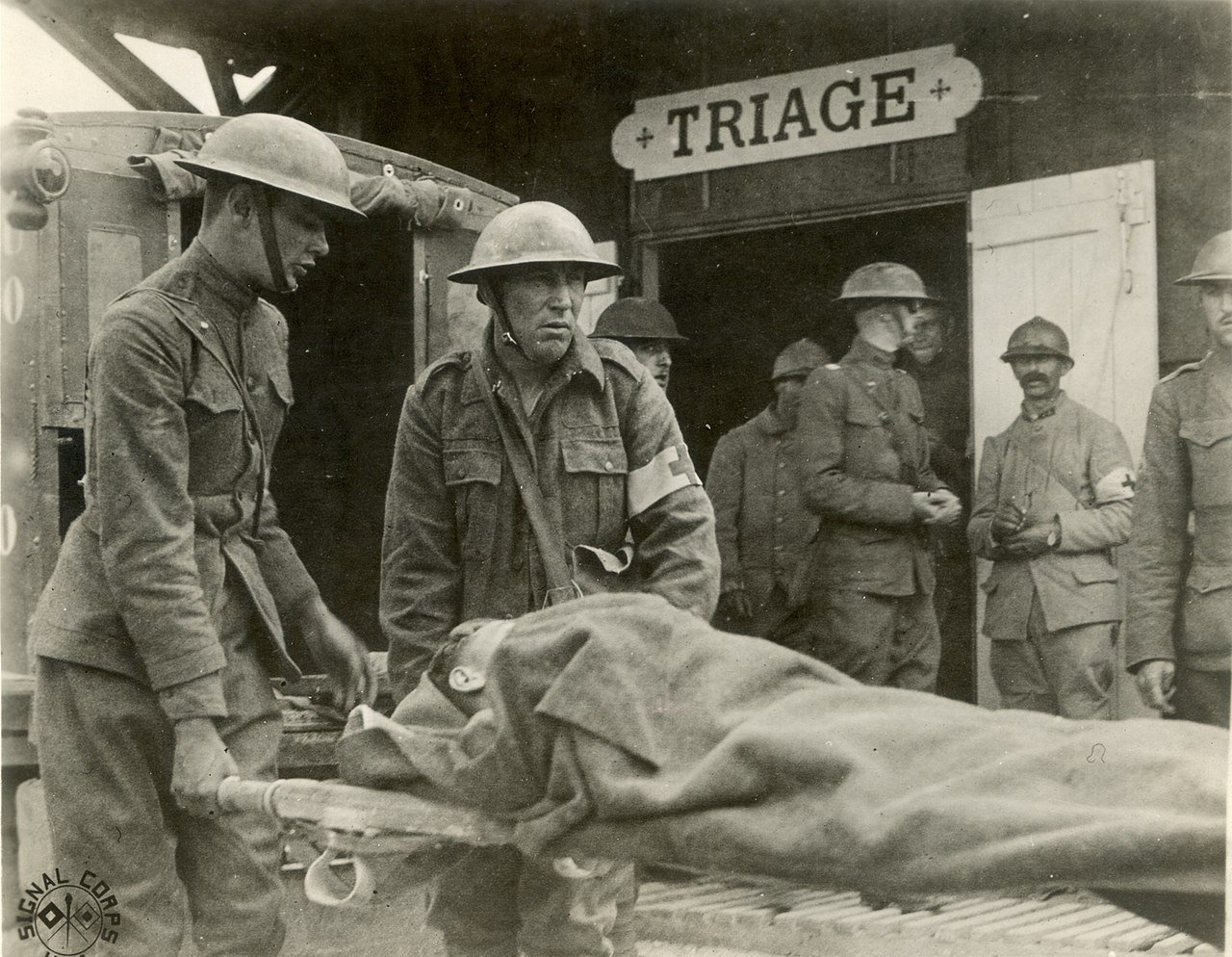2 January 2023
In general, to triage is to sort and classify. The verb is frequently found in medical contexts, where it is used to refer to prioritizing patients in need of treatment. But English use of the word has its origins in commercial contexts, in particular that of the trade in wool.
Triage is a borrowing from French, where it is a noun derived from the verb trier, which simply means to classify or sort. It dates to the fourteenth century in Middle French, and we see it in Randle Cotgrave’s 1611 French-English dictionary:
Triage: m. Choice, a culling, or picking out from among others. Triages de forests. The seuerall diuisions, walkes, or parts, of Forests.
It would take another century from Cotgrave’s recognition of the French word to its appearance in English. Triage appears in Ephraim Chamber’s 1728 Cyclopædia under the entry for wool:
The Spaniards make the like division into three Sorts, which they call Prime, Second, and Third; and for the greater Ease, denote each Bale or Pack with a Capital Letter denoting the Sort———If the Triage or Separation be well made, in fifteen Bales there will be twelve mark’d R, that is Refine, or Prime; two mark’d F, for Fine or Second; and one S, for Thirds.
We see the verb in John Smith’s 1747 Chronicon Rusticum-Commericale; or Memoirs of Wool:
Wools of France are commonly sold by the Farmers and Labourers, en suis, i.e. unwashed. Those that buy them first Hand, either wash and triage them, or else sell them in the Fleece, washed only. When the Wool has been triaged, then it is sold only by Weight.
From its use in the wool trade, use of triage spread into the trade in other commodities.
Medical adoption of triage occurred during the First World War and given that American and British soldiers fought primarily in France, the medical use is probably a second borrowing from French and not an extension of the earlier English use in commercial contexts. Tracy Putnam, an American volunteer in the French ambulance service, recorded the word in his diary entry for 27 December 1915:
Chilly, intermittent rain.
Went down about noon. The triage has been transferred from Moosch to Willer; after leaving my men at the latter place, proceeded to the former.
And the verb came into medical use during the war as well. From 24 January 1919 congressional testimony on casualties sustained during the 1918 Meuse-Argonne offensive:
Then, in addition to the 1,733 admitted to the dead and missing by the Secretary’s statement, there must be added the statistics given by the man who had charge of the triage, who says he triaged 5,000, and he believed that in addition to this several hundred went through other triages or were evacuated directly from the field to the evacuation hospital.
Because triage starts with tri-, it is commonly assumed that the word comes from the sorting into three categories. In a medical context, this would be sorting patients into three groups, one for immediate treatment, one for less serious cases where treatment can be delayed, and a third for mortally injured patients who are to receive palliative care. But this is a false etymology, and triage is unrelated to tri- or three.
Sources:
Chambers, Ephraim. Cyclopædia: or, an Universal Dictionary of Arts and Sciences, vol. 2 of 2. London: James and John Knapton, et al., 1728, s.v. wool, 377. Archive.org.
Cotgrave, Randle. A Dictionarie of the French and English Tongues. London: Adam Islip, 1611, s.v. triage. Early English Books Online (EEBO).
“Losses of the Thirty-Fifth Division During the Argonne Battle.” Hearings on the Committee on Rules of the House of Representatives on H. Res. 505, 24 January 1919, 49. HathiTrust Digital Archive.
Oxford English Dictionary, third edition, September 2020, s.v. triage, n., triage, v.
Putnam, Tracy J. “The Death of a Comrade” (diary entry for 27 December 1915). The Harvard Volunteers in Europe. M.A. DeWolfe Howe, ed. Cambridge: Harvard UP, 1916, 131. HathiTrust Digital Archive.
Smith, John. Chronicon Rusticum-Commericale; or Memoirs of Wool, &c., vol. 2 of 2. London: T. Osborne, 1747, 411. Eighteenth Century Collections Online (ECCO).
Photo Credit: US Army Signal Corps, c.1918. Wikimedia Commons. Public domain image.

